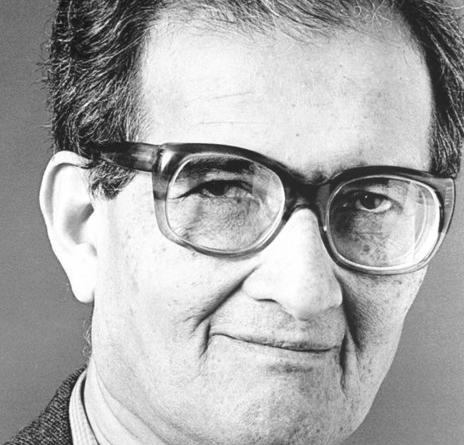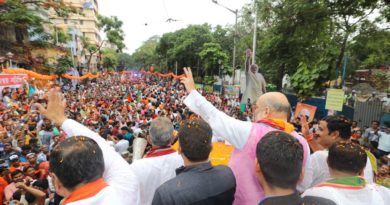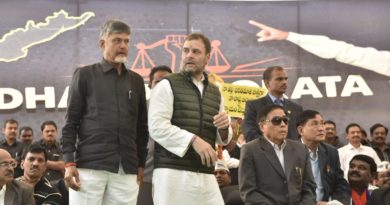Nobel or No Nobel ?

Dilip Chakrabarti
In 1998 Dr. Amartya Sen, the renowned Professor of Economics was awarded a prize during the ceremony of Nobel Prize by the Sverige’s Riksbank Prize in memory of Alfred Nobel. The Royal Swedish Academy of Sciences is responsible for selecting the Laureates in Economic Science. We, the Indians became very happy and proud to see that another son of our country could put his name into this elite list of these achievers.
In the wake of Dr. Amartya Sen’s receiving this award, a controversy has emerged among the Academia, Intellectuals even among the common people. Some are firmly arguing that he did not receive the Nobel Prize while others are arguing that since he received the prize during the Ceremony of Nobel Prize, it is very clear that he has received the Nobel Prize in Economic Science. To resolve this issue I shall try to depict a few facts about the Nobel Prize. Hopefully, after reading this article the readers should be able decide whether Dr. Sen has received the extremely coveted award named the “Nobel Prize”.
Alfred Nobel, the founder of Nobel Prize, was a God gifted Scientist who has many inventions to his credit including Dynamite. Alfred Nobel (in full Alfred Bernhard Nobel), was born in October 21, 1833, in Stockholm, Sweden, and died on December 10, 1896, San Remo, Italy. Alfred Nobel was the fourth son of Immanuel and Caroline Nobel. Immanuel was an inventor and engineer who had married Karolina Andriette Nobel (nee Ahlsell) in 1827. The couple had eight children, of whom only Alfred and three of his brothers reached adulthood.
Immanuel’s family moved to St. Peterburg, Russia, Alfred’s early education started in Russia. He received his education that made him a chemist, engineer, and industrialist who invented dynamite and even more powerful many other explosives. After that Alfred Nobel left Russia in 1850 to spend a year in Paris to study chemistry and then went to the United States and started to work under the supervision of John Ericsson, a famous builder of the ironclad warship Monitor. After returning to St. Petersburg, Alfred started to work in father’s factory. After many failed struggles the family moved back to Sweden leaving two of his brothers in Russia to salvage the family property whatever they could. Eventually the luck turned around and Alfred Nobel turned to become an industrialist and finally he could put a pivotal step in the society as an inventor and as a famous businessman, industrialist and a philanthropist. His fame and kindness started to shine as a lover of humanity in his country and beyond.
“By 1895 Nobel had developed Angina Pectoris, and he died of a Cerebral Hemorrhage at his villa in San Remo, Italy, in 1896.” The opening of his will greatly surprised his family and friends to see that bulk of his fortune left in a trust to establish the most highly regarded of international awards named the “Nobel Prize”. It is thought that 31 million Swedish Krones (around 1.8 billion) was funded for this foundation. According to his will it was decided that “Nobel Prize” will be given annually in Physics, Chemistry, Physiology or Medicine, Literature and Peace. So, only five subjects were chosen for Nobel Prize by Alfred Nobel himself. Besides Chemistry, Physics, Medicine or Physiology, Literature and Peace no other subject was mentioned for awards in his will.
However, in 1968, the Swedish Bank named Sverige’s Riksbank donated substantial amount of money to create a prize as same standard and equivalent to “Nobel Prize” in Economics Sciences in “memory of Alfred Nobel”. The first Prize in Economics Sciences was given in 1968. Since the inception of this prize it is given on the same day and time in the same venue where the “Nobel Prize is distributed”.
“The first prize in economic sciences was awarded(jointly) to Ragnar Frisch and Jan Tinbergen in 1969. The prize in economic sciences is awarded by the Royal Swedish Academy of Sciences, Stockholm, Sweden, according to the same principles as for the Nobel Prizes that have been awarded since 1901.” Dr. Amartya Sen has received this prize in 1998 in Economic Sciences which is awarded by the Royal Swedish Academy of Sciences, Stockholm, Sweden according to same principles and standards as for the “Nobel Prize”.
It will be quite relevant to mention in a few words how the selection process for original five subjects of Nobel Prize and Economic Sciences is done. Although the winners are announced in October and November, the process of selection usually begins in early Autumn of the preceding year. The prize-awarding institutions invite more than 6000 individuals to propose or nominate candidates for the Nobel Prize or Prize in Economic Sciences in memory of “Alfred Nobel”. These nominations come from some Nobel Laureates, Prize-awarding Institutions, Scholars active in the fields of Physics, Chemistry, Physiology or Medicine, Literature, Peace and Economic Sciences. Normally these nominations range from 100 to 250. Self-nomination automatically disqualifies any Nominee. These proposals must be submitted on or before January 31st of the awarding year to the Committee. The Committee then decides on the merit of their work, research etc. who will receive the Nobel Prize in relevant subject and the Economic Sciences. Maximum three persons can jointly receive the prize in any subject. Only Nobel Peace Prize can go to any Organization. If receiving a Nobel Prize is the highest recognition for a scientist, being awarded twice by the Swedish Academy, so far, only four people can boast of it, they are Frederick Sanger, Linus Pauling, John Bardeen and Marie Curie. “The Curie family has received the most prizes, with four prizes awarded to five individual laureates. Marie Curie received the prizes in Physics (in 1903) and Chemistry (in 1911).”
The only person who refused the Nobel Prize is General Le Duc Tho of Vietnam. When the Armistice was broken in Christmastime by bombing Hanoi by the order of Henry Kissinger, Le Duc Tho did not like it at all. In 1973, when the Nobel Prize was awarded to him together with Henry Kissinger, General Le Duc Tho refused to accept the prize that his co-recipient Kissinger has violated the truce between Vietnam and USA destroying so many lives in Hanoi. Thus he became the only person who refused to receive a Nobel Prize in the history.
Any Indian, Bengali or not should be proud of Dr. Amartya Sen for receiving the highest award of Economic Sciences in the world whether it is a “Nobel Prize” or the “Prize in memory of Alfred Nobel” when the award Committee recognizes “the Prize of Economic Sciences in memory of Alfred Nobel”. However, this award is recognized in many ways equivalent to the “Nobel Prize” itself. Both recipients are recognized and adorned as “Nobel Laureate”, the difference is just the literal. The financial reward of the prize is same as “Nobel Prize” and it has added substantial amount money in Dr. Sen’s bank account.
This article is intended to let readers know about the factual information about the “Nobel Prize” and the “Economic Sciences in memory of Alfred Nobel”. However, we all know that truth is history and history is truth.
I believe that after the perusal of this article the reader should be able to decide whether Dr. Amartya Sen deserves to be called a “Nobel Prize” winner or not. Finally, no matter what, he is India’s pride and Bengal’s glory, who wore the medal of “Nobel Prize” and proudly walked out into the world as one of the “Nobel Laureates.”Reference:Google




